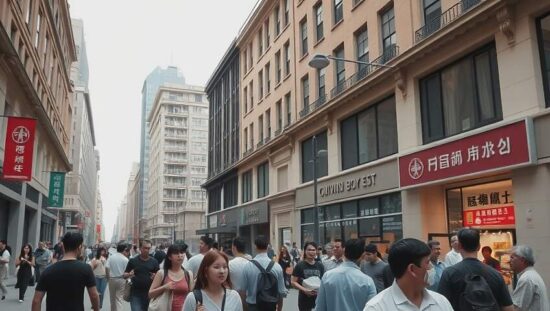A growing rift within Germany’s ruling coalition is emerging following controversial remarks by Chancellor Friedrich Merz, who alluded to an ongoing “problem” affecting the visual landscape of urban areas. The comments, perceived by many as thinly veiled references to migration and its perceived impact on German cities, have drawn sharp criticism from the Social Democratic Party (SPD) and fueled calls for a formal parliamentary resolution to address the increasingly divisive debate.
Adis Ahmetovic, SPD parliamentary representative for Hannover and the party’s foreign policy spokesperson, voiced strong concerns in an interview with “Stern” magazine, urging the coalition – comprised of the CDU, CSU and SPD – to formulate a unified vision for urban spaces. “We need a parliamentary resolution to rationalize this debate” Ahmetovic stated, suggesting a structured approach to tackling issues of vacant properties, enriching cultural experiences, improving security and ensuring cleanliness in cities. He proposed various mechanisms for achieving this consensus, including a formal invitation from the Chancellor to discuss the matter within the coalition committee or the establishment of a dedicated working group.
The core of the SPD’s critique lies in the ambiguity of Merz’s language. Ahmetovic accused the Chancellor of employing “vague language” that risks fostering resentment and inadvertently bolstering the far-right Alternative for Germany (AfD). He pressed Merz for greater specificity, questioning the precise nature of the “problem” he identified. “What exactly is the problem, according to Friedrich Merz?” Ahmetovic asked pointedly, hinting at a belief that the Chancellor’s concerns are rooted in prejudiced assumptions. The SPD representative emphasized the crucial fact that, as Chancellor, Merz speaks not only for his own party but for the entire coalition, a responsibility he believes demands far greater clarity and sensitivity.
This escalating disagreement highlights a broader tension within the German government regarding immigration and its integration into urban life. While the coalition ostensibly shares a commitment to inclusivity and social cohesion, diverging perspectives on the visible manifestations of this process are increasingly surfacing, threatening to destabilize the fragile political equilibrium and potentially feeding support for the AfD’s rhetoric of exclusion. The SPD’s insistence on a formal parliamentary resolution reflects a deliberate attempt to reframe the conversation, force greater transparency from the Chancellor and preempt the further exploitation of anxieties surrounding urban development and societal integration.





